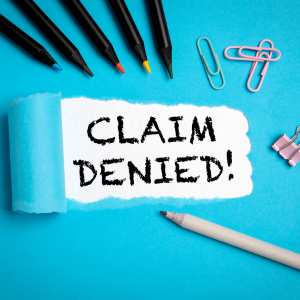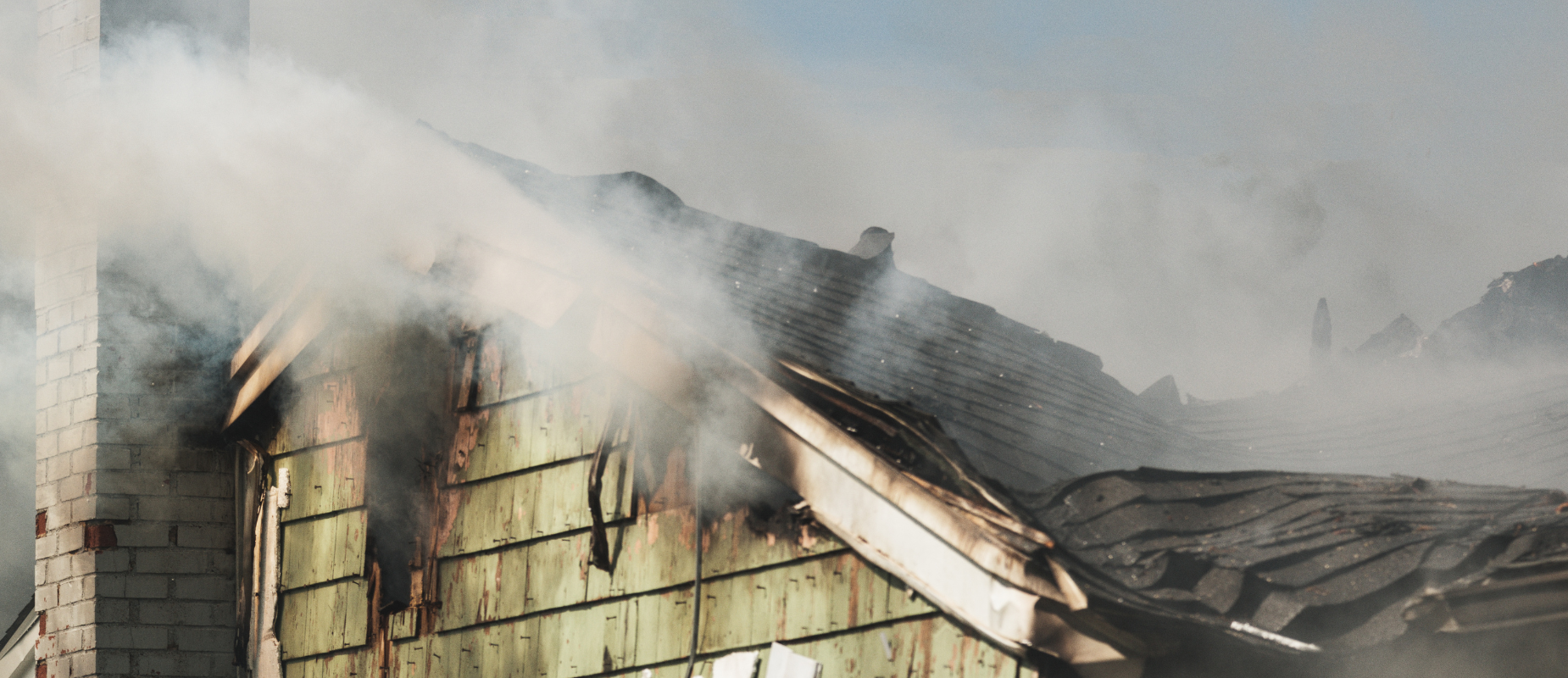
How Do Insurance Companies Evaluate Fire Claims?

What Factors Determine the Validity of a Fire Claim?
Insurance companies review fire insurance claims, taking into account numerous important criteria. First, they evaluate the degree of property damage. Then, insurance adjusters inspect the location to ascertain the degree of the loss. Accurate documentation—including pictures and thorough descriptions of missing objects—is absolutely vital.
You really must know your insurance policy. Many fire insurance policies feature exclusions, including willful acts or neglect-related damages that may compromise claim validity. Reviewing your policy guarantees compliance.
Another important factor is thoroughly executing the claims process. Clear communication with your insurance company can prevent misunderstandings that may lead to claim denial.
How Does Location Impact Fire Insurance Claims in Texas?
Location plays a major role in evaluating fire insurance claims, especially in Texas. Geographic risks, like being near fire-prone areas or far from a fire station, influence insurance companies’ risk assessments. Local regulations and fire safety standards also dictate what is required for adequate property insurance.
In Texas, homeowners insurance coverage may vary based on these regional risks. Property owners should align their insurance coverage with location-based risks to avoid issues when filing a claim.
Exploring Common Mistakes That Lead to Denial
What Are the Most Frequent Errors in Filing Claims?
Filing an insurance claim can be complex; common mistakes often lead to denial. Misunderstanding the insurance policy, especially its exclusions, is a frequent error. Policyholders sometimes overlook clauses that exempt certain damages from coverage.
Timing mistakes can also cause denial. Late filing or not reporting the incident promptly can complicate matters. Prompt and accurate filing is essential to prevent denial.
Documentation errors and a lack of complete understanding of the claims process can be problematic. To avoid complications, each claim should be supported by precise documentation.
How Can Miscommunication Affect Your Claim’s Outcome?
Miscommunication between policyholders and insurance companies can greatly affect a claim’s outcome. Clear communication is important to avoid misrepresentation and disputes with claims adjusters. Policyholders should ensure all information provided to their insurance company is accurate and complete.
If miscommunication leads to misunderstandings, the claim’s outcome can suffer, possibly resulting in an insurance dispute. Establishing clear communication from the beginning is fundamental to a successful claims process.
For further guidance or assistance with fire insurance claims, consider consulting professionals like Home Buying Hounds, who offer expertise in navigating these complex processes. Contact them to help ensure your claim is managed with care.
The Role of Evidence in Fire Insurance Claims
Evidence is crucial in fire insurance claims. To correctly handle claims, insurance firms require extensive documentation. Verifying property damage and guaranteeing the insured receives the due reimbursement depend on this proof. Lack of or badly arranged evidence sometimes results in denial of many assertions. Knowing the need for adequate documentation helps one avoid these problems.
Why Is Documentation So Critical in Fire Claims?
Documentation is essential for proving fire insurance claims. Without it, claim denial is more likely. Insurance claims rely on solid proof of the loss. Property damage should be documented with clear photos, videos, receipts, and detailed descriptions. Policyholders in Texas need to be especially careful, as many denied claims result from poor evidence and incorrect documentation.
What Steps Can Be Taken to Collect Strong Supporting Evidence?

To build a strong claim, policyholders should:
- Take Photos: Capture clear images of the damaged property from different angles.
- Record Videos: Document the extent of the damage in videos.
- Keep Receipts: Save all purchase receipts for damaged items to prove their value.
- Gather Reports: Keep copies of fire reports and any investigation documents.
- Consult an Insurance Adjuster in Texas: A knowledgeable adjuster can help document the damage properly.
Following these steps strengthens a claim, making it more convincing to the insurance company.
Legal Rights and Protections for Policyholders in Texas
Texas insurance laws provide strong protections for policyholders. Knowing these rights is important when dealing with disputes with an insurance company. Whether it’s a coverage question or a problem with a homeowner’s insurance denial, understanding legal options can greatly affect the claim’s outcome.
What Legal Protections Exist for Policyholders?
Policyholders have several rights under Texas insurance laws:
- Appeal Denials: Policyholders can formally appeal if a claim is denied.
- Understand Coverage: Knowing what your insurance covers can prevent wrongful denials.
- Legal Recourse for Denial: Policyholders can seek legal action if a claim is denied unfairly.
- Know Denial Reasons: Understanding common reasons for denial can help prepare a stronger claim.
These protections allow policyholders to challenge unfair decisions and pursue fair compensation.
How Can Legal Representation Assist in Disputes?
Hiring an insurance dispute attorney in Texas can be very helpful. Legal professionals support in navigating denial disputes and seeking justice. Here’s how they assist:
- Analyze Denial: Attorneys examine the reasons for denial to find potential mistakes.
- Negotiate: They negotiate with insurance companies for fair settlements.
- Pursue Legal Action: They pursue legal actions to resolve disputes if needed.
- Guide on Texas Laws: Their knowledge of local laws protects policyholder rights.
Consulting an experienced insurance lawyer in Texas can make a big difference for those facing claim denials.
If you need further assistance or have specific concerns about your fire insurance claims, feel free to contact Home Buying Hounds. Our team is ready to guide and support you every step of the way.
What Preventative Measures Can Reduce Claim Denial Risk?

How Can Preemptive Actions Strengthen Your Claim?
In Texas, homeowners insurance claims can be safeguarded by taking proactive steps. Regular home maintenance is essential for reducing the risk of claim denial. Inspecting your property routinely and making necessary improvements decreases the chances of issues like fire damage, which can heavily impact an insurance claim outcome.
Keeping detailed documentation is another vital action. Record all property improvements and repairs, along with receipts and photographs. This evidence not only reflects the condition of your property but also bolsters your position if you need to file a claim.
What Role Does Regular Policy Review Play?
Regularly reviewing your policy ensures that your homeowner’s insurance coverage in Texas aligns with your needs. As situations change, checking coverage limits and making any necessary adjustments to avoid coverage gaps is prudent. During the review process, identify insurance exclusions and consider policy endorsements that may better suit your current circumstances. This proactive method can avert disputes with insurers when filing a claim, leading to a smoother process.
Importance of Fire Safety Compliance
How Does Compliance With Fire Codes Affect Claims?
Adhering to fire codes is key to preventing fire incidents and achieving favorable outcomes in insurance claims. Conduct regular compliance checks to ensure safety equipment, such as smoke detectors and fire alarms, are operational and meet standards. Following fire safety regulations can also qualify you for an insurance discount, as insurers often reward safety-conscious policyholders.
What Are Common Safety Failures That Impact Claims?
Neglecting crucial safety measures increases the risk of property damage and complicates insurance claims. Common failures include missing or non-functional smoke detectors and poor electrical system maintenance. Such negligence raises the risk of fire damage and may lead to policy non-compliance. To mitigate these risks, conduct regular property inspections and promptly address any issues to maintain compliance with insurance requirements.
Following safety guidelines and implementing these precautionary measures will drastically reduce the possibility of claim denial. See our staff at Home Buying Hounds for further information or help. We promise to guide you confidently and effortlessly through insurance coverage.
How Do Insurance Adjusters Make Decisions on Fire Claims?
What Is the Role of an Insurance Adjuster?

Analyzing fire insurance claims calls for insurance adjusters. Their primary responsibilities are determining the sum the insurance company should make and evaluating the fire damage. Collecting data, evaluating losses, and weighing any insurance restrictions or exclusions involved, adjusters
Negotiating claims in Texas means knowing the strategies insurance companies utilize. These strategies can include meticulously reading policy text or examining the extent of damage to suggest a smaller settlement. Knowing these strategies helps policyholders guarantee equitable handling of their claims.
How Can You Effectively Communicate With Adjusters?
Communicating effectively with insurance adjusters in Texas can shape the results of a fire insurance claim. Policyholders should aim to have clear discussions about their claims. Here are some tips for communicating clearly with insurers:
- Be Prepared: Know your policy details before speaking with the adjuster.
- Document Everything: Keep records of all communications, including dates, times, and key topics discussed.
- Ask Questions: If anything is unclear, don’t hesitate to ask for clarification.
- Maintain Professionalism: Stay calm and polite to support a more productive conversation.
Texas policyholders can improve their communication strategy by following these guidelines, leading to a smoother claim process.
Why Some Claims Are Marked as Fraudulent
What Triggers Suspicion of Fraud in Claims?
Insurance fraud is a significant issue, especially in fire insurance claims. In Texas, certain indicators, known as red flags, may trigger an insurance fraud investigation. These include inconsistent statements, unusual fire origins, and differences between claimed losses and actual damages.
Misrepresentation often leads to fraud accusations. This could involve overstating the value of lost items or not disclosing prior damage. Knowing these triggers helps claimants present their cases transparently.
What Can Be Done to Avoid Fraud Accusations?
Policyholders should focus on honesty and transparency during insurance claim documentation to prevent accusations of fraud. Here are some steps to follow:
- Conduct Self-Assessments: Regularly review your property insurance policy to understand and comply.
- Maintain Accurate Records: Keep detailed inventories and receipts for all insured items.
- Disclose Pertinent Information: Provide all relevant information upfront, without omissions or false statements.
In Texas, following these practices in property insurance claims can help avoid fraudulent perceptions and ensure the claim process runs smoothly and transparently.
For more information on navigating the fire insurance claim process, contact Home Buying Hounds, where our experts are ready to help you with guidance and support.
Resources and Support for Policyholders Facing Denial
Where Can Policyholders Seek Help After a Denial?
Support options are available if you face a denied insurance claim in Texas. Consult an insurance dispute attorney in Texas for legal recourse. They can help navigate the complexities of insurance company tactics. Knowing Texas insurance regulations can also assist with understanding insurance denial and the potential for appeals. Policyholders should consider structured appeal processes to contest an insurance denial. Consumer protection agencies offer valuable support and advocacy during such disputes.
What Community Resources Are Available for Fire Victims?
Fire victims in Texas can access numerous community resources for support. Non-profit organizations often provide immediate relief, including temporary housing and essential supplies. Support groups and counseling services are also available to help manage emotional and psychological trauma after a disaster. Familiarizing yourself with Texas fire insurance laws ensures your claims are managed correctly. Emphasizing fire safety through awareness programs can prevent future fires. These resources collectively aid recovery from property damage effectively.
Could Mediation Be a Solution for Disputed Claims?
What Are the Advantages of Mediation Over Litigation?

Mediation is often more advantageous than litigation for disputed insurance claims in Texas. This method of dispute resolution is typically more cost-effective and quicker, allowing for faster settlements while maintaining confidentiality. Mediation involves cooperation between parties facilitated by an experienced insurance adjuster in Texas. Policyholders can reach favorable outcomes by choosing mediation without the lengthy court process.
How to Initiate Mediation for Your Insurance Claim?
To start mediation for your insurance claim, gather all necessary documentation related to your case. This includes detailed evidence of your property insurance claim and any correspondence about claim negotiation in Texas. Choosing a skilled mediator experienced in insurance disputes is key to a successful outcome. Consulting with an insurance dispute attorney in Texas can further assist in preparing for the mediation process, providing expert guidance.
For more detailed assistance or inquiries, consider contacting Home Buying Hounds to connect with experts who can provide personalized support tailored to your situation.
FAQs:
What are some common reasons insurance companies deny fire claims in Texas?
Insurance companies might deny fire claims for reasons like suspected arson, misrepresenting facts, not complying with policy terms, or lacking evidence to prove the fire’s cause. It’s essential to keep detailed records and meet all policy requirements to bolster your claim.
How can I appeal a denied fire insurance claim in Texas?
To appeal a denial, gather relevant documents, review your policy for coverage exclusions, and understand why it was denied. You might need help from an insurance dispute attorney in Texas to negotiate with the insurer or pursue legal action if needed.
What steps should I take if my home insurance claim is denied in Texas?
First, understand the reasons for the denial from your insurer. Collect all supporting evidence, keep track of communications, and consult an insurance claims lawyer if necessary. You can also file a complaint with the Texas Department of Insurance.
Can insurance companies deny claims based on policy exclusions in Texas?
Yes, they can deny claims due to specific policy exclusions, such as acts of war, fraud, or intentional damage. Reading your policy’s fine print helps you know what is covered and what isn’t.
Why do insurance companies deny fire claims due to misrepresentation?
Misrepresentation during the application or when reporting a fire incident can lead to denial. Insurers rely on accurate info to assess risks, and discrepancies may be seen as fraud, leading to claim denial.
What role does documentation play in preventing fire claim denials in Texas?
Thorough documentation, such as photos, receipts, and witness statements, is crucial. It supports your claim by providing evidence of fire damage and compliance with policy terms, reducing the chance of denial.
Are there legal recourses if an insurance company in Texas wrongly denies a claim?
Yes, legal options are available if a claim is wrongly denied. Texas law allows for bad faith claims against insurers who unreasonably deny valid claims. An experienced insurance claim attorney can help explore these options.
What impact can previous claims have on new fire insurance claims?
Previous claims might influence underwriting decisions for new policies, potentially resulting in higher premiums or stricter terms. Insurers may view multiple claims as indicating higher risk, affecting your ability to get favorable coverage terms.
Key Insights
- Insurance companies may reject fire claims in Texas due to policy exclusions, misrepresentation, or inadequate documentation. Understanding the reasons behind a denial is essential.
- Claims denial can occur if insurers suspect fraud, inconsistent coverage limits, or breaches of insurance contract terms.
- Denial of fire claims insurance can result from not fulfilling policy requirements. We help clients navigate the complex process of addressing fire claims denials in Texas.
- Common reasons for denying fire claims include insufficient evidence, delayed reporting, and unauthorized repairs.
- Homeowners in Texas might face denied insurance claims if they do not follow the required process or fail to provide necessary documentation.
- Legal options for denied fire claims in Texas include hiring an insurance dispute attorney to challenge the insurer’s decision.
- Understanding Texas fire insurance laws and insurer tactics can help effectively solve insurance issues.
- We assist clients with appealing denied claims and ensuring proper documentation for successful submissions.
- In storm-prone areas like San Antonio, insurance policies may include specific exclusions that affect fire insurance claims in Texas.
- Consulting with an experienced lawyer can help address partial claim denials and clarify the fine print in Texas insurance policies.
Read on to learn more about how to sell a duplex in Texas. These findings apply all over Texas, including Fairview, Austin, El Paso and nearby areas. For more help, contact us at (833) 997-7653.


